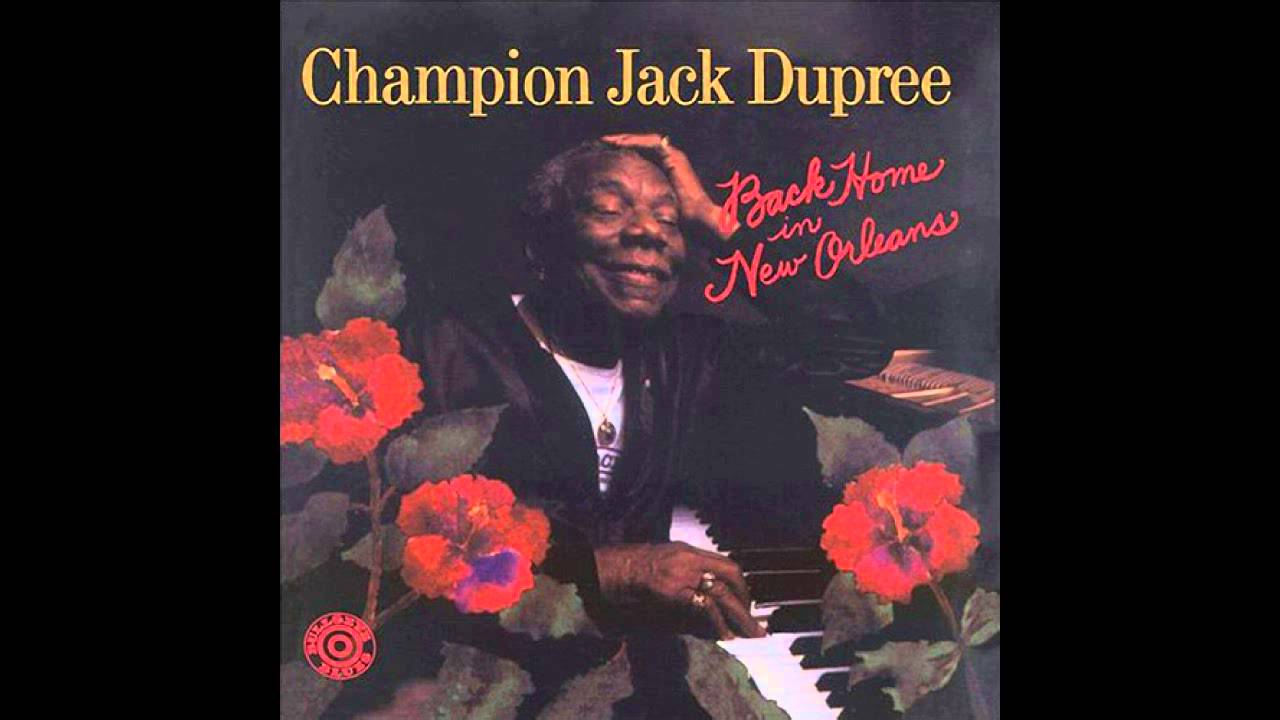This week’s Song of the Day curator is Elliott Hurwitt, longtime friend of NYFOS and music historian specializing in the works of W. C. Handy.
from Elliott Hurwitt:
Champion Jack Dupree was born in New Orleans around 1910 and died in Hanover, Germany, in 1992. Son of a father from the Belgian Congo and a mother of African American and Cherokee heritage, he was orphaned at two and sent to the same Home for Colored Waifs that had provided a musical training ground for Louis Armstrong just a few years earlier. Dupree taught himself piano and embarked on a career playing in juke joints and brothels around the country. He was a fine chef, and worked in the culinary arts professionally at several points in his life. Dupree came by the sobriquet “Champion Jack” the hard way. Having gone into the boxing ring at the suggestion of heavyweight champion Joe Louis, he fought over 100 bouts and won Golden Gloves titles, among other distinctions. Considering how many punches he must have landed on who knows how many jaws, it’s a wonder he could play piano at all.
In the 1940s and ’50s Dupree worked on the boundaries of rhythm and blues, folk music, and jazz, with Sonny Terry and Brownie McGhee, among other notables. He was a prolific recording artist, cutting many sides in New York, and had a hit with “Walking the Blues” in 1955. By the end of the 1950s Dupree was spending most of his time in England and Denmark, where he liked the career opportunities and relative lack of race prejudice. A plaque commemorates Dupree’s residence in Halifax, England, his home in later years. In the mid-1960s he recorded in London with some of a new generation of blues-influenced rock n’ rollers, including Eric Clapton and John Mayall.
Dupree asks the time-honored question “Why?” The answer, of course, if “I Don’t Know.” He’s accompanied here solely by the electric guitar of Kenn Lending, a Danish musician who worked with him steadily during the expatriate blues-man’s later years. In his solo, prodded by Dupree to “steal a few notes, steal a few notes,” then “take one more, son!” Lending eases into some blistering high notes. Dupree could stoop to the very low humor, and he must have made a terrible adversary. But his rough good nature and hard-earned mother wit are a tonic in a complicated world.



0 Comments